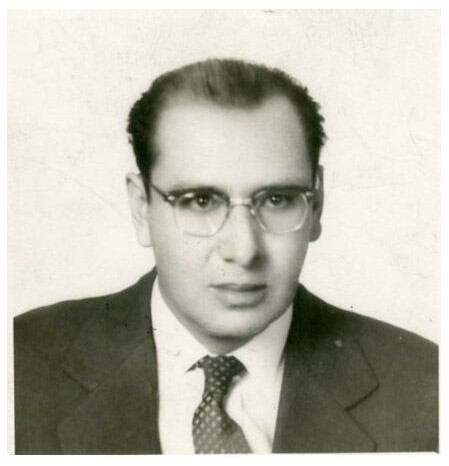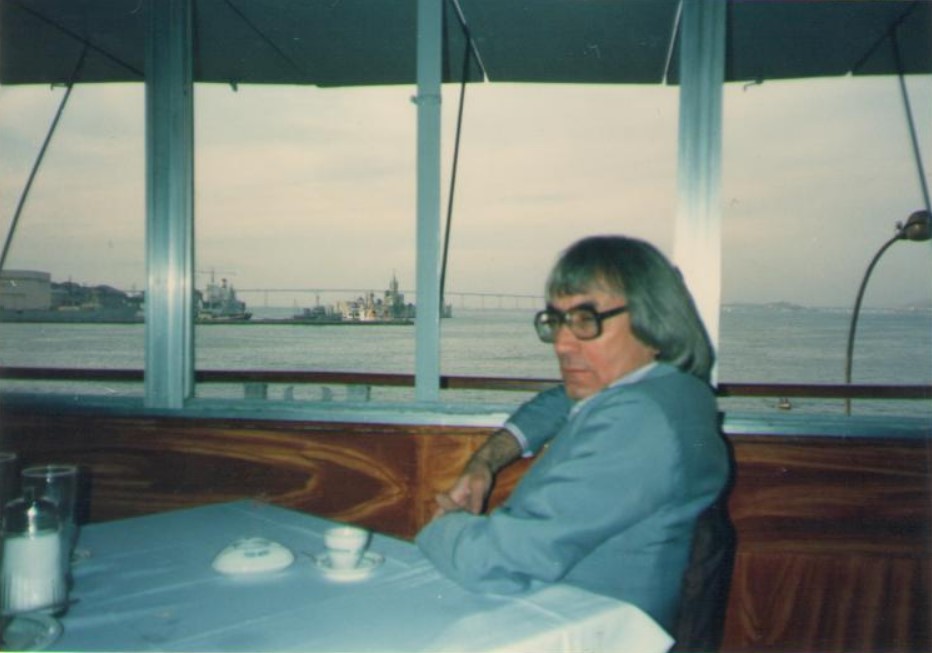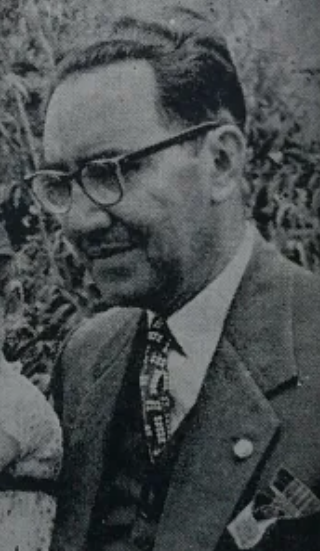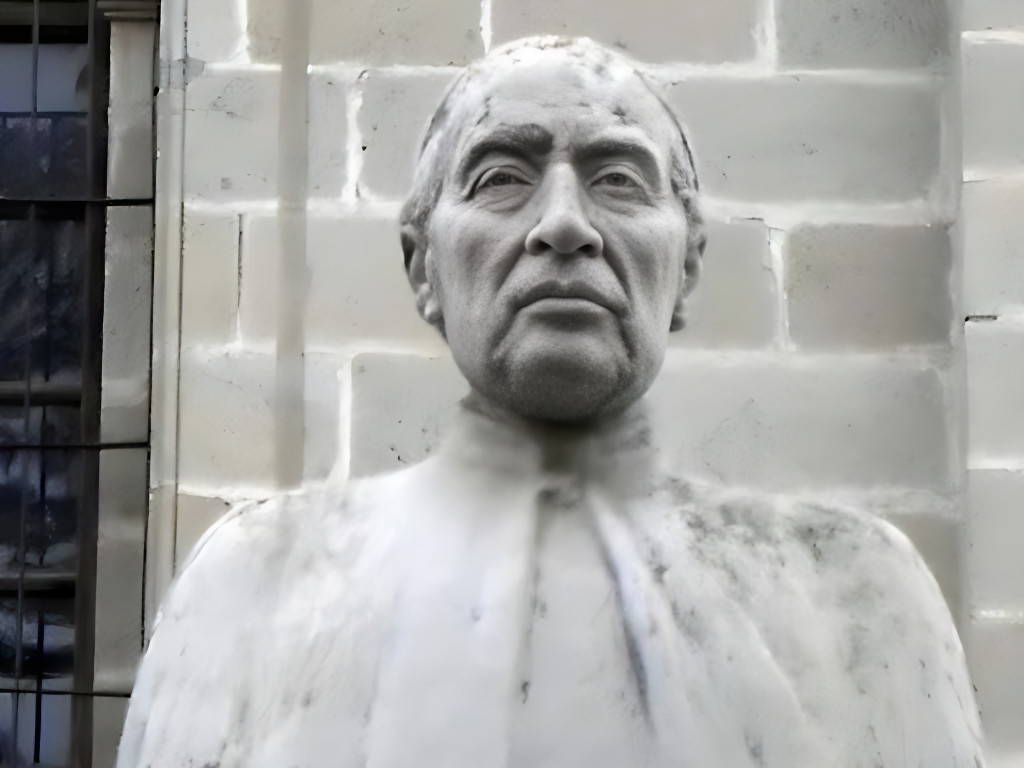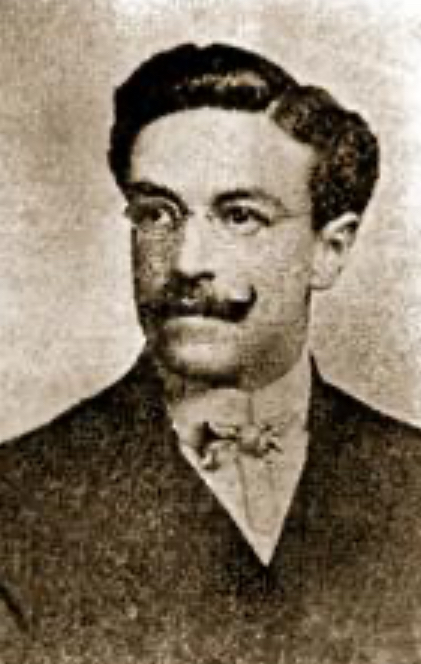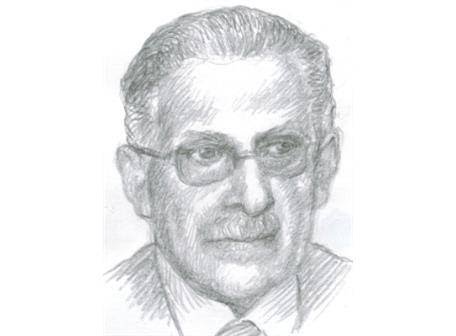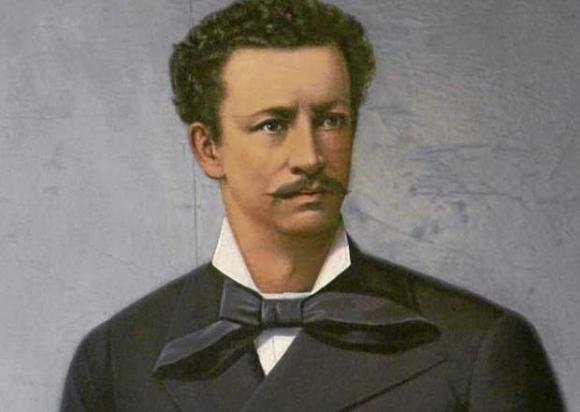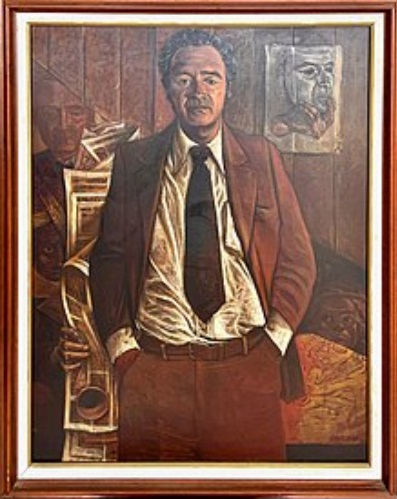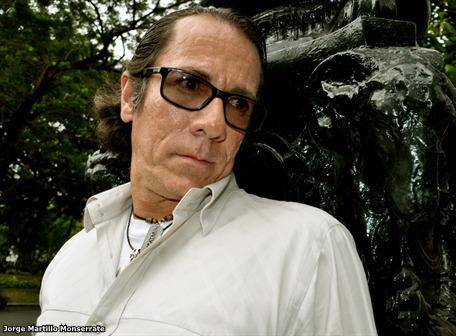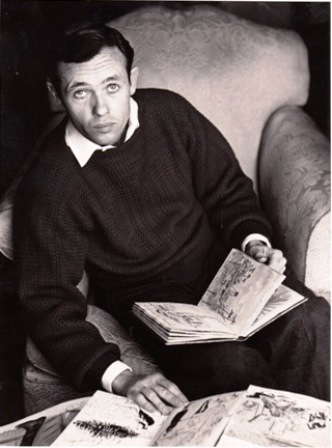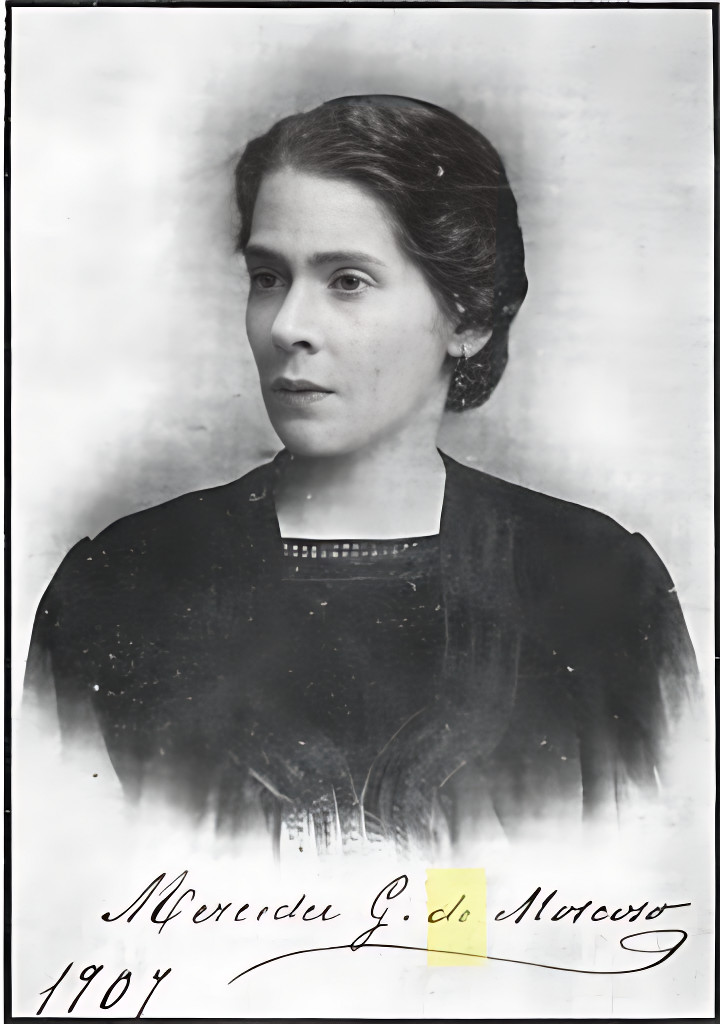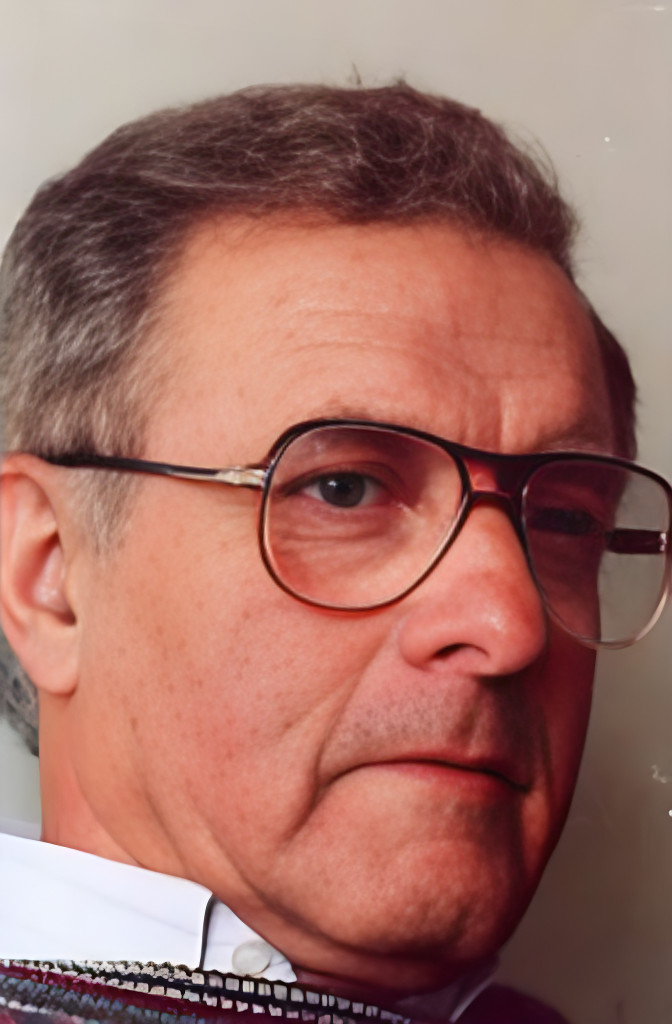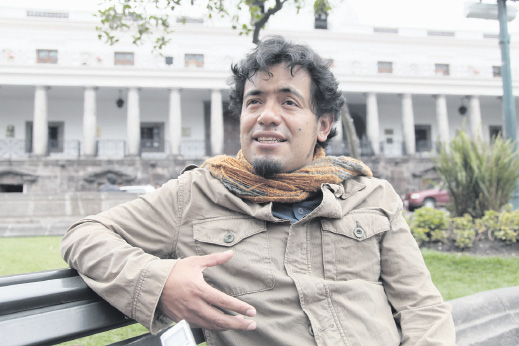Gilberto Molina Correa (Cañar, September 20, 1915 – Unknown) was an Ecuadorian poet, novelist, playwright, short story writer, essayist, and educator. His diverse body of work spanned multiple genres, including notable contributions such as the novel Sismos y abismos (1969), the short story collection Almas conturbadas (1962), and the play Censo sin consenso (1962). He also authored the poetry collection La inefable presencia (1966). He was an influential advocate for educational reform and a school director, serving as head of Escuela Municipal “Joaquín Donoso” in Vinces. Molina Correa left a lasting mark on both Ecuadorian literature and education.
Continue reading “Gilberto Molina Correa”Category: Playwrights
Sergio Román Armendáriz
Sergio Román Armendáriz (Riobamba, Ecuador, February 12, 1934) is an Ecuadorian poet, playwright, screenwriter, and professor. A member of the avant-garde poetry group “Club 7” (1951-1962), he has contributed significantly to Latin American literature through works such as Cuaderno de canciones (1959) and the experimental play Función para butacas (1972). After political exile in the 1960s, he settled in Costa Rica, where he became a distinguished professor at the University of Costa Rica, specializing in literature, drama, and communication. His career also spans film, most notably co-writing Nuestro Juramento (1981), a film about singer Julio Jaramillo.
Continue reading “Sergio Román Armendáriz”Viviana Cordero
Viviana Cordero (Quito, August 3, 1964) is an Ecuadorian writer, playwright, and film director. She studied Modern Literature at the Sorbonne in Paris and began her career in 1990 by co-producing Sensaciones, the first Ecuadorian feature film made in 35mm. Cordero is known for her novels, including El Paraíso de Ariana (1994), El Teatro de los Monstruos (2000), and Mundos Opuestos (2010), as well as for her significant contributions to Ecuadorian theater and cinema. Her works explore themes of identity, memory, and societal roles, particularly focusing on women’s experiences.
Continue reading “Viviana Cordero”Augusto César Saltos
Augusto César Saltos Jarrín (Guaranda, December 18, 1899 – Guaranda, August 26, 1976) was a prominent Ecuadorian lawyer, writer, and cultural advocate. He served as a member of the Supreme Court of Justice and was deeply involved in social justice, advocating for the rights of workers and indigenous peoples. A co-founder of the Socialist Party in Ecuador, Saltos also participated in international peace conferences. He was a prolific author, known for his dramas, such as El Minero (1940) and Queriendo ser Grande (1943), which addressed social issues, and for works on Ecuadorian history and folklore, including El Cacique Huaranga (1969). Saltos led the Bolívar branch of the Casa de la Cultura Ecuatoriana from 1952 to 1970.
Continue reading “Augusto César Saltos”Ramiro Dávila Grijalva
Ramiro Dávila Grijalva (Quito, 1945) is an Ecuadorian poet and playwright known for his literary works that explore cultural and historical themes. He is the author of El Canto de las Sirenas (1982), a notable collection of poetry, and the play Tragedia de la Prisión y Muerte de Atahualpa (1988), which dramatizes the tragic fate of the Inca ruler Atahualpa. His other works include the play Leonor Yupangui, Esther de las Indias (2018), which is inspired by indigenous legends and history, as well as other plays like El Cóndor Enamorado and La Leyenda del Tío Lobo y el Sobrino Conejo. His poetry collections also include Historia de un Jilguero and Jugar Rayuela, Mi Voz y Otros Delirios (2007). Dávila Grijalva’s contributions have been recognized and preserved in various Ecuadorian libraries and cultural institutions.
Continue reading “Ramiro Dávila Grijalva”Juan Félix Proaño Castillo
Dr. Juan Félix Proaño Castillo (Riobamba, July 20, 1850 – Quito, July 30, 1938) was an Ecuadorian priest, theologian, writer, educator, and political figure, whose extensive contributions spanned the late 19th and early 20th centuries, significantly shaping Ecuador’s cultural and religious landscape. Celebrated for founding “El Templo del Sagrado Corazón de Jesús” in 1892, a newspaper that integrated religious teachings with cultural and literary discourse, Proaño stood firm against the liberal reforms of his era. This conviction led to his exile, during which he persisted in his scholarly and pastoral work. His historical drama “Quisquís” is particularly notable for its portrayal of Incaic civilization, underscoring his commitment to chronicling and preserving Ecuador’s rich historical and cultural heritage.
Continue reading “Juan Félix Proaño Castillo”Carlos Arturo León Romero
Carlos Arturo León Romero (June 25, 1886, Riobamba – December 19, 1968, Quito) was an Ecuadorian lyricist, poet, playwright, and distinguished lawyer. Born into a family with a rich legal heritage, he carved a niche for himself not just in the courts but also on the cultural stage of Ecuador. His works spanned across various genres including drama, poetry, and novels, showcasing his versatility and deep engagement with the socio-political themes of his time. León Romero’s contribution to Ecuadorian literature and theater is profound, with plays such as “Reparación,” “El Recluta,” and “La Huérfana” earning critical acclaim and popular success. His establishment of the Teatro Daniel León further cemented his legacy as a patron of the arts, providing a platform for the performing arts in Ecuador.
Continue reading “Carlos Arturo León Romero”Lauro Dávila Echeverría
Lauro Dávila Echeverría (Pasaje, El Oro, August 18, 1885 – Guayaquil, December 23, 1968) was an Ecuadorian poet, playwright, songwriter, and teacher. Best known for writing the lyrics and music to Guayaquil de mis amores, a song that has become an anthem of the city of Guayaquil, Dávila composed 23 songs and authored several poetry collections, including Lira del alma and 21 estampas de la vida real. He was also a founding member and the first secretary general of the National Union of Musicians. Dávila’s contributions to Ecuadorian culture earned him numerous awards, including the Gold Medal from the Council of Guayaquil in 1945.
Continue reading “Lauro Dávila Echeverría”Juan Montalvo
Juan Montalvo, born Juan María Montalvo y Fiallos (Ambato, Ecuador, April 13, 1832 – Paris, France, January 17, 1889) was an influential Ecuadorian author, essayist, and formidable polemicist whose writings had a significant impact on the political landscape of his time. Known for his notable works such as “Las Catilinarias” (1880) and “Siete Tratados” (1882), Montalvo exhibited a fiery, unapologetic style, often challenging and criticizing the political status quo. As a political liberal, his beliefs were characterized by anti-clericalism and a fierce opposition to the authoritarian regimes of Gabriel García Moreno and Ignacio de Veintemilla. Despite facing exile multiple times, his penetrating critiques and commitment to democratic principles left a lasting legacy in Ecuador and beyond. Montalvo’s audacious spirit, combined with his eloquent prose, positioned him as a key figure in Latin American literature, while his life and works continue to symbolize the power of the written word as a tool for political change.
Continue reading “Juan Montalvo”Carlos Villasís Endara
Carlos Alfonso Villasís Endara (Bahía de Caráquez, November 17, 1930 – Quito, January 27, 2023) was an Ecuadorian writer, poet, playwright, and renowned art critic. He was the founder of the literary group “Galaxia,” member of the “Caminos” group, vice president of the Cotopaxi chapter of the House of Ecuadorian Culture, member of the Legal-Literary Society, and an honorary member of the Association of Plastic Artists of Ecuador. He was known by his family and friends as “Carlucho.”
Continue reading “Carlos Villasís Endara”Juan Carlos Cucalón
Juan Carlos Cucalón (Guayaquil, 1963) is an Ecuadorian short story writer and playwright. In 2007 he won first place in the Pablo Palacio Short Story Biennial with his story “Miedo a U2” [Fear of U2]. His book of short stories “Surcos obtusos” won the 2009 edition of the Luis Félix López National Literature Contest. Among the themes of the book are homoeroticism and masculinity in Latin America. In 2010, he premiered his play “Exododedosexos,” whose plot follows two transgender women named Malva Malabar and Simoné Bernadette who prepare to stage a play by Tenesse Williams. Cucalón is openly homosexual, and throughout his career he has published numerous stories featuring characters of various sexual orientations.
Continue reading “Juan Carlos Cucalón”Eduardo Solá Franco
Eduardo Solá Franco (Guayaquil, Ecuador 1915 – Santiago, Chile, 1996) was a prolific and multi-faceted artist, perhaps the most diverse Ecuador has ever produced. His staggering output included not only hundreds of paintings in a variety of styles but also sculpture, illustrations for magazines and film, stage scenery, plays, poetry and novels, choreographed ballets, award-winning experimental films and, perhaps most intriguing of all, a series of 14 illustrated diaries in which he recorded, “all that which I saw of interest and that attracted me: people, landscapes, cities, states of being, spectacles, parties, and fashion.” He was also a public figure, he served for years as Ecuador’s cultural attache in Rome, mingling with artists, thinkers, and society figures of Europe, the United States, and South America.
Continue reading “Eduardo Solá Franco”Mercedes G. de Moscoso
Mercedes González de Moscoso (Guayaquil, October 12, 1860 – Quito, November 23, 1911) was a prominent Ecuadorian poet and playwright, considered the leading figure of the country’s second Romantic movement. Her poetry focused on themes of family, motherhood, and domestic life, often expressing a deep melancholic tone shaped by personal loss. Among her most notable works are Reminiscencias (1890), En el Nido (1899), and Cantos del hogar (1909). She also wrote plays, including Martirio sin culpa and an adaptation of her poem Abuela into a three-act play, both produced in 1907. Her work made her an important voice in Ecuadorian literature and feminist circles.
Continue reading “Mercedes G. de Moscoso”Mario Cobo Barona
Mario Cobo Barona (Ambato, September 10, 1930 – Ambato, April 16, 2007) was an Ecuadorian poet, playwright, essayist, and educator. He wrote over 30 books in different genres. The Ecuadorian House of Culture published an anthology containing the majority of his poetic works. He held various posts in Ecuador in the field of education, such as Vice Minister of Public Education, Provincial Director of Education of Tungurahua, and Rector of the Rumiñahui National School, to name a few. He received several accolades and recognitions for his work as an educator. On July 31, 1997, he became a corresponding member of the House of Ecuadorian Culture. On January 17, 2002, he was honored with full membership into the academy.
Continue reading “Mario Cobo Barona”Javier Cevallos Perugachi
Javier Cevallos Perugachi (Quito, January 18, 1976) is a poet, playwright, actor, and stage director. He has worked on over 25 stage productions with national and international groups and actors. His literary works include the poetry collections, “La ciudad que se devoró a sí misma” (2001) and “C” (2005), as well as the plays “¡Repúbica! / Danzante” (2012) and “Ofelia City & Llaktayuk” (2014).
Continue reading “Javier Cevallos Perugachi”